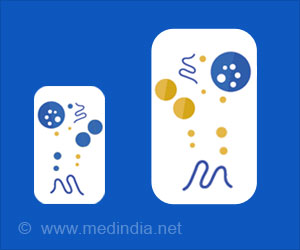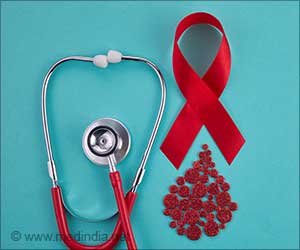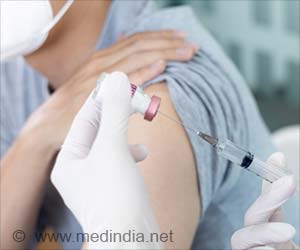A new AI-powered blood test boasts a 90% accuracy rate, offering a painless and highly effective screening method.
- A novel AI-powered blood test can detect stomach cancer with 90% accuracy, offering a noninvasive alternative to current methods
- Early detection of stomach cancer through this AI-based method could increase survival rates to over 90%
- The AI approach identifies 21 specific DNA methylation markers, making it a revolutionary tool in gastric cancer screening
Plasma cell-free DNA methylome-based liquid biopsy for accurate gastric cancer detection
Go to source). Gastric cancer is a major health concern worldwide, accounting for the fifth most prevalent cancer and the fourth main cause of cancer-related deaths (2✔ ✔Trusted Source
Gastric Cancer
Go to source). This invention has the potential to completely transform stomach cancer screening and save countless lives.
The AI-powered blood test can detect stomach cancer using just a tiny amount of DNA from the bloodstream, making it a game-changer in noninvasive cancer screening! #healthcareinnovation #cancerawareness #medindia’
Early Detection of Stomach Cancer Increases Survival Rate by 90%
Chinese scientists have developed a unique approach for identifying cell-free DNA (cFDNA), which can come from both healthy and malignant cells. This cfDNA circulates in the bloodstream, mostly via cell death and active secretion processes.The study emphasizes the terrible truth that more than 80% of stomach cancer cases in China are detected at an advanced stage (3✔ ✔Trusted Source
Screening for gastric cancer in China: Advances, challenges and visions
Go to source). Consequently, the five-year survival rate stays below 30%. However, the researchers stress that early discovery can significantly improve outcomes, with survival rates exceeding 90% in some cases.
Diagnosis of Stomach Cancer
Endoscopies and blood indicators are currently used extensively in the diagnostic process. Endoscopies, while useful, can be painful for patients and have the potential to cause problems. In contrast, serum indicators have only a 20% detection rate.The researchers discovered these flaws in the healthcare system. They then aimed to design a more accurate and patient-friendly screening approach, with the goal of achieving a 90% accuracy rate.
Noninvasive And Painless AI-Based Approach to Help Detect Gastric Cancer
AI-powered screening method demonstrated great accuracy. This study was headed by researchers Wang Hongzhi and Nie Jinfu of the Hefei Cancer Hospital, the Chinese Academy of Sciences, and Sun Ruifang of the Shanxi Provincial Cancer Hospital. They used artificial intelligence to develop a noninvasive, painless screening approach.According to the researchers, this approach eliminates the need for intubation or imaging, making the procedure more pleasant and painless for patients. The research team used AI algorithms that were compatible with the cfMeDIP (cell-free methylated DNA immunoprecipitation) approach. This technology can identify very small amounts of DNA. It aids in the creation of a detection model that detects 21 methylation indicators unique to stomach cancer.
A study of 150 gastric cancer patients and 100 healthy controls found that this approach was effective, with a sensitivity of 88.38% and specificity of 94.23%.
References:
- Plasma cell-free DNA methylome-based liquid biopsy for accurate gastric cancer detection - (https://onlinelibrary.wiley.com/doi/10.1111/cas.16284)
- Gastric Cancer - (https://www.ncbi.nlm.nih.gov/books/NBK459142/)
- Screening for gastric cancer in China: Advances, challenges and visions - (https://pubmed.ncbi.nlm.nih.gov/34158737/)
Source-Medindia
















